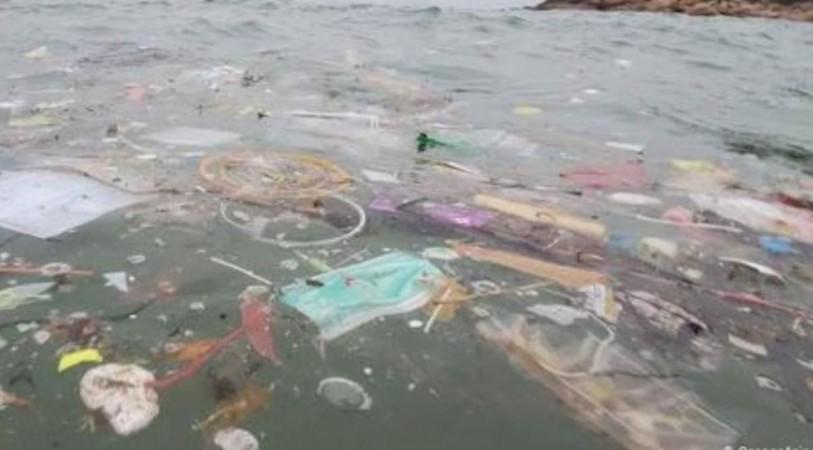While Covid-19, hopefully, will be history someday but millions and millions of discarded masks aren't going to evaporate from planet Earth anytime in the next few hundred years. When we discard them away, these masks can not only harm the environment in the long run but can soon after be life-threatening to animals around.
Oceanic hazard

The simple methodology of plastic applies. Masks, pretty much like all other plastic materials, pose a risk to waterways and water bodies. That is where they degrade into even smaller pieces of microplastic and in the process release hazardous chemicals. These chemicals result in oceanic acidification, which can directly impact marine life.
Threat to animals
Apart from choking the water ways like other plastic, the ear straps on masks can also result in wild animals getting entangled in them. Since birds and fishes have already been seen with masks tangled in their wings/fins. How the trash is disposed directly affects animals. Since animals often mistake trash for either food or shelter.

Do your bit, it's easy
Starting with reusable washable masks is a great starting point for preventing mask waste from piling on by the second. Those outside of the medical field can easily switch to washable reusable masks. To prevent masks from being a danger to wildlife, join the Elastic Cut Campaign. It's one simple step of cutting the elastics while disposing the masks.
UK-based animal welfare charity RSPCA (Royal Society for the Prevention of Cruelty to Animals) has been appealing to the public to "snip the straps" of their masks before disposing them off. The staff of the charity has received overwhelming number of reports of animals and birds tangled in the straps of masks.
Since the start of lockdown in the March of 2020, they have reportedly dealt with 938 incidents of animals caught in litter, like tin cans, elastic bands, plastic bottles. In an interview with The Independent, the charity's chief executive Chris Sherwood emphasized the need to switch to reusable masks and also the need for snipping the straps.
"We are keen to get the message out that straps should be stripped the same way as plastic rings of cans should be cut. As very sadly, animals are susceptible to getting tangled up in them," he said.

















